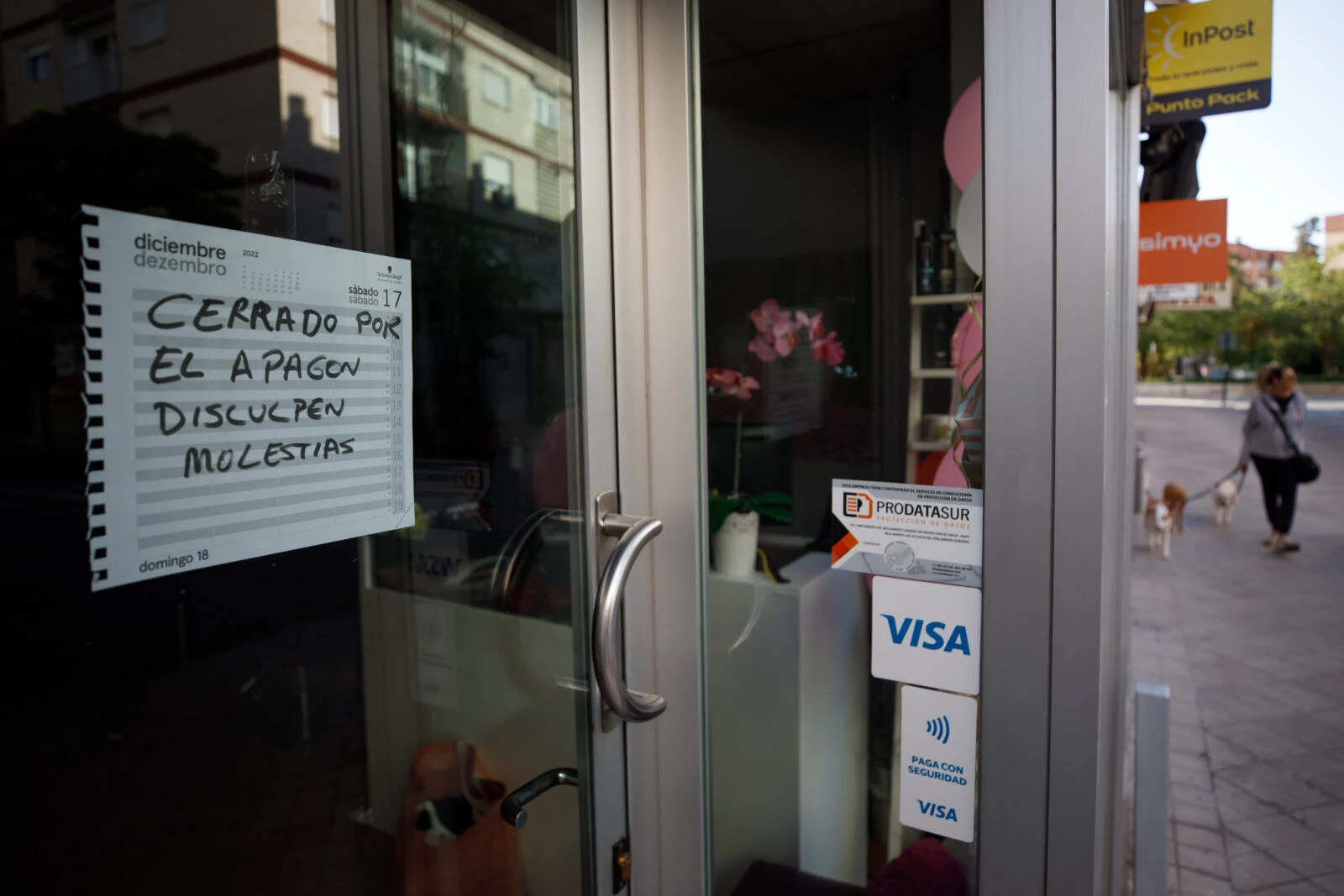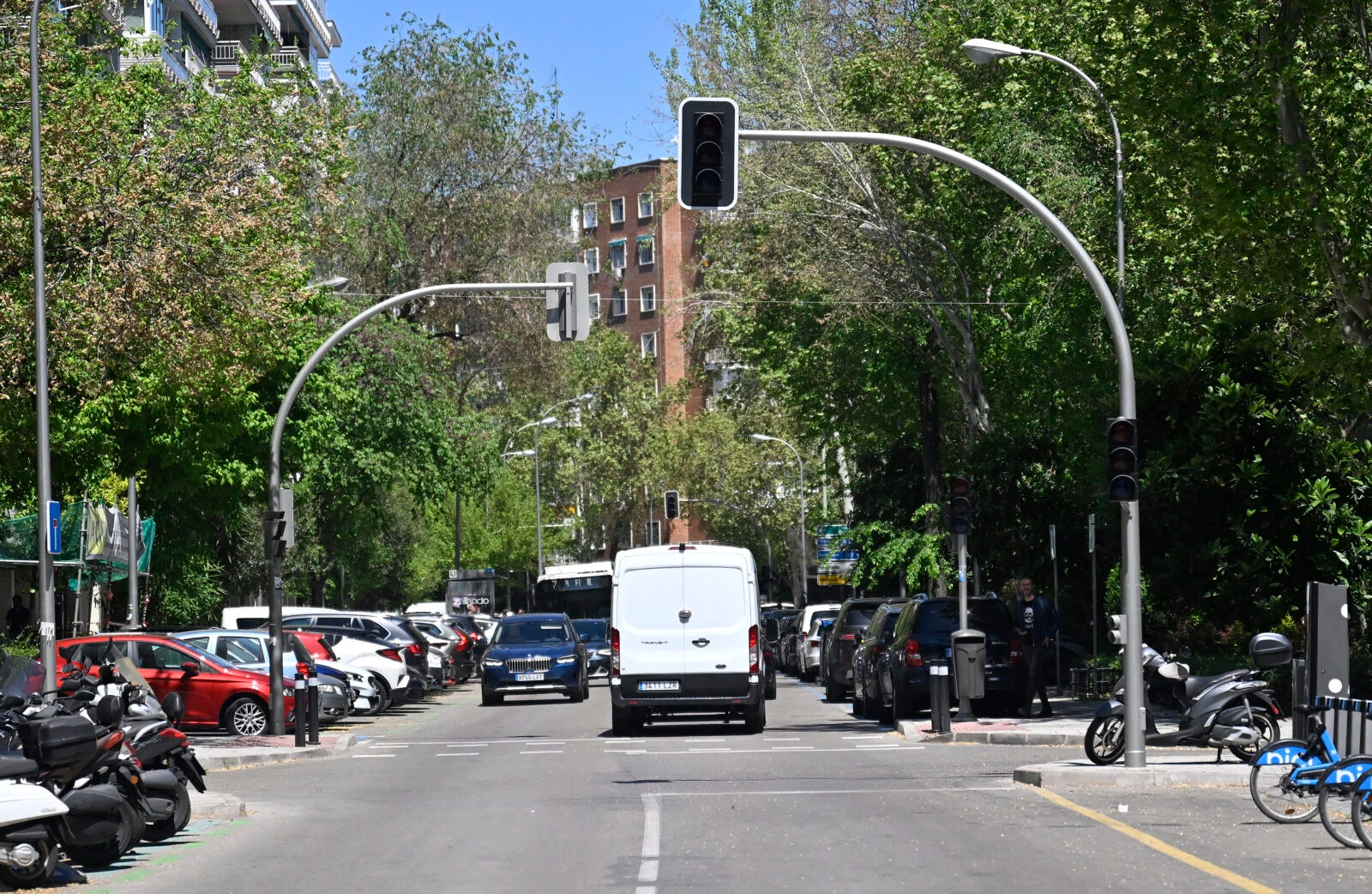Spain, Portugal rule out cyberattack in massive blackout
 Passengers wait in front of a train services information board at Atocha station in Madrid on April 29, 2025, the day after a massive power cut affecting the entire Iberian peninsula and the south of France. (AFP Photo)
Passengers wait in front of a train services information board at Atocha station in Madrid on April 29, 2025, the day after a massive power cut affecting the entire Iberian peninsula and the south of France. (AFP Photo)
A massive power outage that affected Spain and Portugal on Monday was not caused by a cyberattack, the director of Spain’s electricity grid operator Red Electrica confirmed on Tuesday.
“We have been able to conclude that there was no intrusion in the grid’s control center,” Eduardo Prieto, Red Electrica’s operations director, told reporters during a press briefing. He also noted that it was “too early” to determine whether human error contributed to the outage, which originated in southwestern Spain, a key producer of solar energy.

Blackout leaves millions in the dark
The Iberian Peninsula suffered its worst blackout in modern history on Monday, with nearly all of mainland Spain and Portugal losing power for several hours.
The blackout caused chaos, including massive traffic jams and significant disruptions to daily life. By midnight, 61% of Spain’s power demand had been restored, and by Tuesday morning, Prime Minister Pedro Sanchez announced that 99.95% of the country’s electricity supply had been recovered.
Despite the inconvenience, there were no major security incidents reported during the blackout. Streets filled with people who took the opportunity to socialize, while children played outside in the absence of electronic devices.
Some residents even formed long lines to enjoy ice cream before it melted. However, for others, particularly those stuck in elevators or on public transport, the experience was far from ideal.

Traffic chaos and stranded travelers
Massive traffic jams paralyzed major cities like Madrid, where traffic lights and public transportation services were down. Thousands of travelers were stranded, with around 35,000 people rescued after being trapped during rail travel.
Emergency services had to assist people who were stuck in underground metro systems, and many businesses were paralyzed, unable to operate due to power outages.
In some regions, a state of emergency was declared as local governments sought help from the central government to manage the response. Madrid’s regional President Isabel Diaz Ayuso stated that it was “too early” to lift the state of emergency, as the cause of the blackout remains unclear.

No cyberattack, no atmospheric event
Both Spain and Portugal have ruled out a cyberattack as the cause of the blackout, despite rumors circulating on social media. Prieto confirmed that Red Electrica’s control systems were not compromised, adding that no cybersecurity incident had been identified.
Portuguese authorities also dismissed claims of an external cyberattack, with government spokesman Antonio Leitao Amaro affirming that no evidence pointed to a hostile act.
Portugal’s grid operator REN also denied circulating a message that attributed the blackout to a rare atmospheric phenomenon, further quelling these rumors.
“The analysis we’ve conducted so far has ruled out a cybersecurity incident,” Prieto said. “There was no intrusion in Red Electrica’s control systems.”

Cause of the blackout still unclear
Despite ruling out a cyberattack or atmospheric event, authorities are still investigating the cause of the blackout.
Prieto explained that the disruption appeared to stem from a significant fluctuation in the power flow, which was compounded by a substantial loss of power generation in southwestern Spain.
“The fluctuation surpassed the reference disruption for which the electric systems are designed and operated in the European Union, triggering a disconnection of the peninsular Spanish electric system from the rest of the European system,” Prieto said.
Restoration and recovery
By Tuesday morning, power had been largely restored, and public services resumed. High-speed train lines connecting Madrid, Barcelona, and Seville were up and running, although regional train services remained affected.
In Madrid, Atocha station saw crowds of travelers eagerly awaiting train departures, as public transport slowly returned to operation.
However, the blackout left its mark on businesses, with some fearing that spoiled perishable goods would result in financial losses.
“We’re scared it will go bad, that we have to throw everything away,” said Maria Luisa Pinol, owner of Granja Isabel, a bar in Barcelona that had to close during the blackout.

Vulnerability of renewable energy systems
The blackout has prompted further debate about the vulnerability of Spain’s renewable energy systems, particularly solar power. With more than 75% of Spain’s energy coming from renewable sources, the event has sparked concerns about the stability of the country’s power grid, especially when relying on intermittent sources such as wind and solar.
Victor Becerra, a professor of power systems engineering at the University of Portsmouth, emphasized that the combination of renewable energy with traditional energy sources can lead to system vulnerabilities, particularly when failures occur in one area, placing pressure on neighboring systems.

Spanish government investigates blackout
In response to the nationwide blackout, Spain’s government has set up a commission to investigate the causes, Prime Minister Pedro Sanchez announced on Tuesday.
“All the necessary measures will be taken to ensure that this does not happen again,” Sanchez said, emphasizing that no possible causes had been ruled out.
The investigation continues as authorities work to determine the precise cause of the outage, which left millions of people in Spain and Portugal without power.



